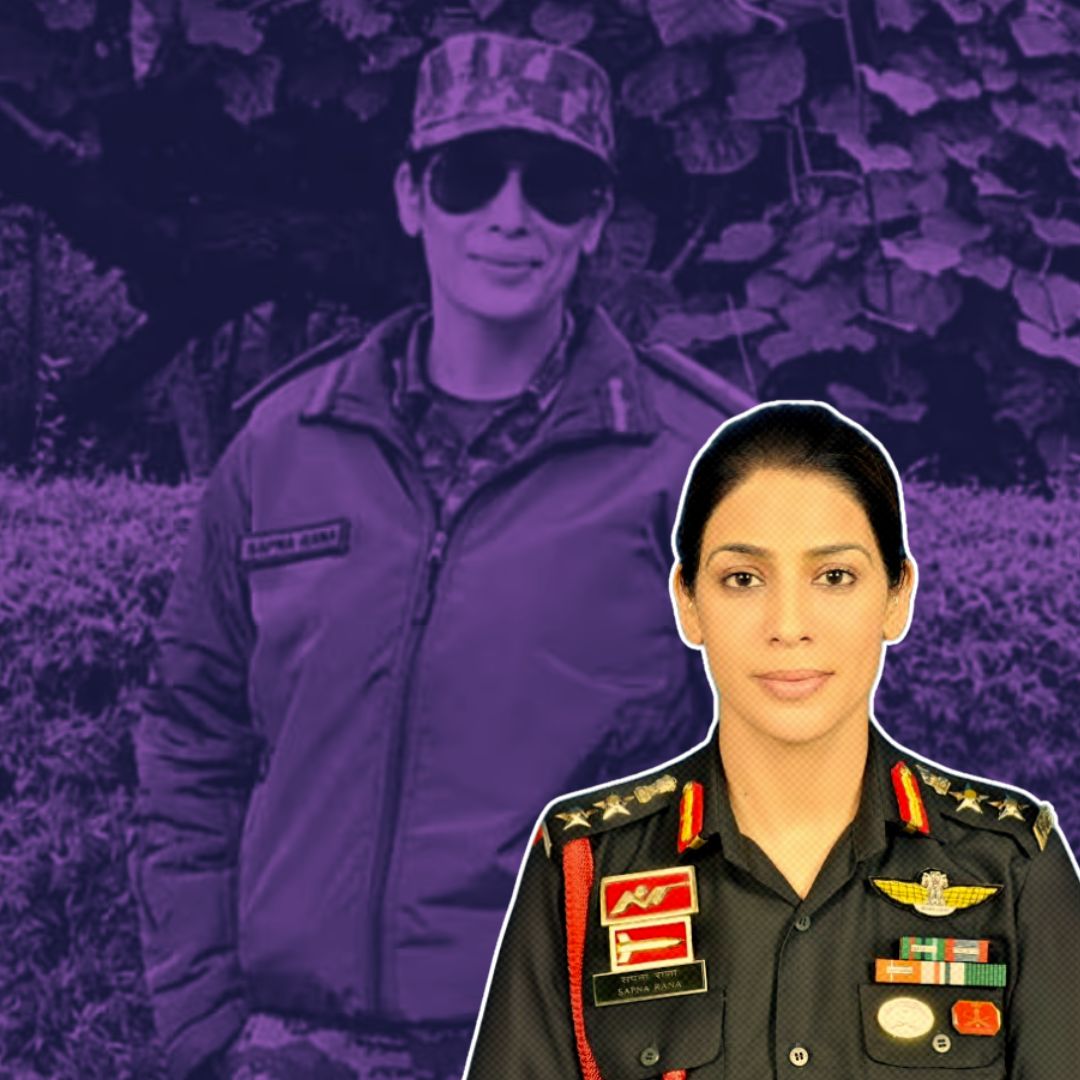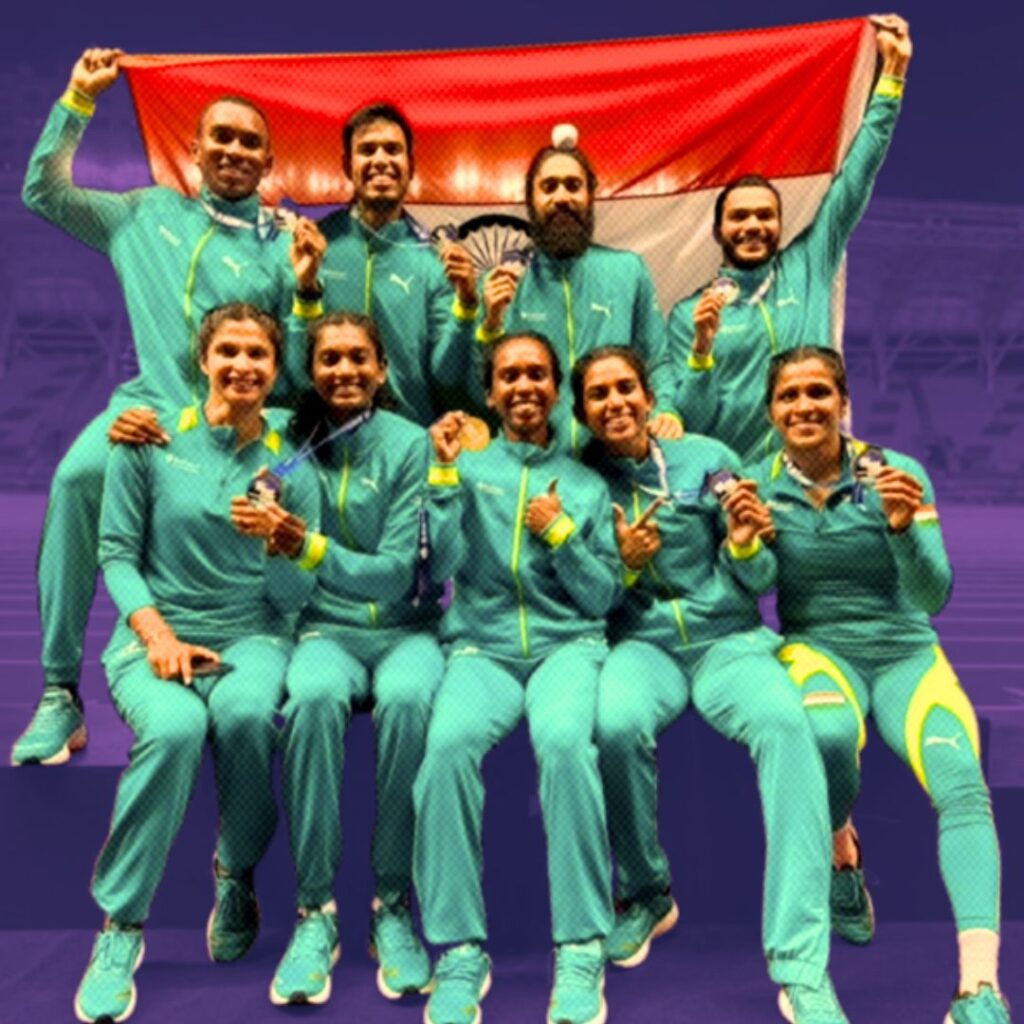Colonel Sapna Rana, a pioneering woman from the remote village of Bhawanipur in Himachal Pradesh, has made history by becoming the first woman from her state to command an Army Service Corps battalion in Northeast India.
Rising from humble beginnings marked by rural hardships, financial constraints, and long daily treks to college, she has carved a distinguished military career since her commissioning in 2004. Her leadership, resilience, and dedication have earned her three prestigious commendation cards from the Chief of Army Staff and the General Officer Commanding-in-Chief.
Colonel Rana’s inspiring journey has garnered widespread acclaim from military officials, educational institutions, and public figures, positioning her as a role model for women and youth across India striving to overcome barriers and achieve their dreams.
From Village Life to Military Leadership: The Early Years and Family Support
Born to Rajender Thakur, a committed schoolteacher, and Krishna Thakur, a homemaker, Colonel Sapna Rana’s childhood in Bhawanipur village was grounded in simplicity and hard work. The family’s modest income meant that every opportunity had to be earned with perseverance.
As a young girl, Sapna helped tend cattle and manage household chores, responsibilities that instilled discipline and resilience early on. Recognising her academic potential and dreams of higher education, her parents made the significant decision to relocate to Solan’s Saprun suburb, a place offering better schooling and college facilities.
Despite the improved access to education, financial challenges persisted. To save money on transport, Sapna often trekked halfway to college, a daily testament to her determination. She excelled in her studies, securing admission at Himachal Pradesh University for an MBA degree in Shimla.
Initially preparing for the Civil Services exam, she pivoted to appear for the Combined Defence Services exam midway, a decision that would change her life trajectory. Her selection for officer training was a proud moment for her family, who supported her unwaveringly throughout.
Rising Through the Ranks: Achievements and Recognition in the Indian Army
Commissioned as a Lieutenant in 2004, Colonel Rana quickly distinguished herself during rigorous training, winning gold medals in cross-country running and obstacle events. Her physical stamina and mental toughness set her apart, laying the foundation for a successful career in the Indian Army.
Over the past two decades, she has risen steadily through the ranks, culminating in her current role as the Commanding Officer of an Army Service Corps battalion stationed in the strategically sensitive Northeast region.
Her leadership has been exemplary, earning her three commendation cards from the Chief of Army Staff (COAS) and the General Officer Commanding-in-Chief (GOC-in-C), prestigious recognitions reflecting her dedication and excellence. Beyond her military duties, Colonel Rana is a national-level shooter, marathon runner, and microlight pilot, showcasing a multifaceted personality committed to pushing boundaries.
Her early involvement as an NCC cadet with the 1 HP Girls Battalion in Solan laid the groundwork for her leadership skills. Her inspiring journey has been celebrated by senior Army officials and public figures alike, including actress Kangana Ranaut, who praised her on social media. Colonel Rana’s story has also been featured in prominent platforms such as The Better India’s ‘Women of Impact’ series, amplifying her message of empowerment.
The Logical Indian’s Perspective
Colonel Sapna Rana’s journey from a small Himachali village to commanding a battalion in the Indian Army is a powerful narrative of courage, resilience, and breaking societal barriers. At The Logical Indian, we view her story as a beacon of hope and empowerment, especially for young women from rural and underprivileged backgrounds who often face systemic challenges in pursuing their ambitions.
Her achievements underscore the critical role of family support, access to education, and opportunities in shaping future leaders.
Her success challenges entrenched gender norms and inspires us to build a more inclusive society where talent and determination are the true measures of potential.
As a platform committed to promoting empathy, harmony, and positive social change, we encourage our readers to reflect: How can we collectively work to dismantle barriers and create pathways for more young Indians-regardless of gender, geography, or economic background-to realise their dreams?











